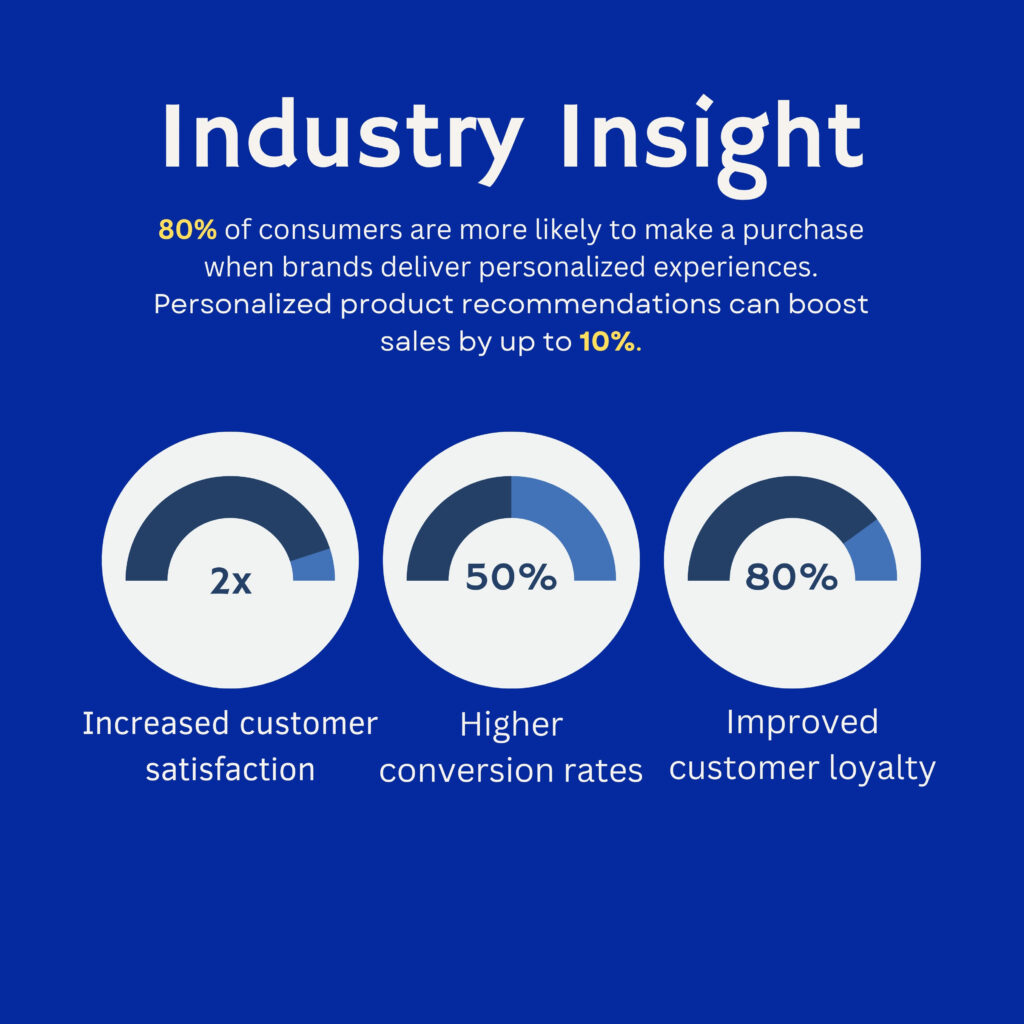Building Deeper Customer Connections Through Hyper-Personalization
Introduction
The success of any business hinges on its ability to connect with customers on a deeper level. Hyper-personalization is not just a trend; it’s a paradigm shift in how businesses understand and engage with their customers. This shift is powered by the ability to analyze and act on data in real time, creating an almost intuitive interaction level. Customers today expect brands to know who they are, understand their preferences, and anticipate their needs. Hyper-personalization delivers on this expectation by leveraging vast amounts of data to create experiences that are as unique as the individuals themselves.
Real-Time Data Processing: The Heart of Hyper-Personalization
A key component of hyper-personalization is the ability to process data in real-time. This allows businesses to respond to customer actions as they happen, offering products, services, or content that is immediately relevant. Real-time data processing requires sophisticated technology infrastructure, including cloud computing, data lakes, and AI-driven analytics platforms. These technologies work together to collect, process, and analyze data from multiple sources, enabling businesses to make split-second decisions that enhance customer experience.
For example, an e-commerce platform might use real-time data to adjust its homepage based on a customer’s recent browsing history, offering personalized product recommendations or displaying targeted promotions. Similarly, a streaming service could dynamically adjust its content recommendations based on a user’s current viewing habits, time of day, or even their device.
The Importance of Contextual Awareness
Contextual awareness is another critical aspect of hyper-personalization. It involves understanding the context in which a customer interacts with a brand, including their location, device, time of day, and even their emotional state. By considering these factors, businesses can tailor their interactions to be more relevant and effective.
For instance, a travel app might offer different recommendations depending on whether a user is at home or on the go. If the app detects that the user is at the airport, it might prioritize showing information about flight delays or gate changes, while if the user is at home, it might suggest nearby hotels or restaurants.
Fun AI Global’s Customer 360 excels in integrating contextual awareness into its hyper-personalization engine. By combining real-time data with contextual information, Customer 360 can create highly personalized experiences that resonate with customers on a deeper level.
The Role of AI and Machine Learning in Hyper-Personalization
Artificial intelligence (AI) and machine learning (ML) are the driving forces behind hyper-personalization. These technologies enable businesses to analyze vast amounts of data quickly and accurately, uncovering patterns and insights that would be impossible to detect manually. AI and ML algorithms can predict customer behavior, recommend products or services, and even automate customer interactions, all based on individual preferences and behaviors.
One of the most significant advantages of using AI and ML in hyper-personalization is the ability to learn and adapt continuously. As more data is collected, the algorithms become more accurate, enabling businesses to refine their personalization strategies over time. This creates a virtuous cycle where improved personalization leads to better customer engagement, which in turn generates more data that can be used to enhance the personalization efforts further.
Fun AI Global’s Customer 360 utilizes advanced AI and ML techniques to deliver hyper-personalized experiences at scale. By continuously analyzing customer data, Customer 360 can identify emerging trends and adapt its personalization strategies in real-time, ensuring that businesses stay ahead of the competition.

Hyper-Personalization and the Customer Journey
The customer journey is no longer a linear path but a dynamic and multi-channel experience. Customers interact with brands across various touchpoints, from websites and mobile apps to social media and in-store visits. Hyper-personalization enables businesses to create a seamless and consistent experience across all these touchpoints, ensuring that customers receive relevant and personalized interactions at every stage of their journey.
For example, a customer might begin their journey by researching a product on their mobile device, continue reading reviews on a laptop, and finally purchase in-store. With hyper-personalization, businesses can connect these dots, offering personalized recommendations and information at each step of the journey. This improves the customer experience and increases the likelihood of conversion and loyalty.
Fun AI Global’s Customer 360 is designed to optimize the customer journey by providing a unified view of the customer across all channels. By integrating data from multiple sources, Customer 360 enables businesses to deliver consistent and personalized experiences that guide customers smoothly from discovery to purchase.
Ethical Considerations in Hyper-Personalization
As businesses collect and analyze more data to fuel hyper-personalization efforts, ethical considerations must be considered. Data privacy is a significant concern, with regulations such as GDPR and the California Consumer Privacy Act (CCPA) imposing strict requirements on how businesses collect, store, and use customer data. Transparency is also crucial; customers need to understand how their data is being used and have control over their personal information.
Beyond compliance, businesses must also consider the ethical implications of using AI and ML to influence customer behavior. While hyper-personalization can create value for customers by offering more relevant products and services, it can also be perceived as intrusive if not done correctly. Striking the right balance between personalization and privacy is essential for maintaining customer trust.
Fun AI Global takes these ethical considerations seriously with its Customer 360 product. The platform is designed to comply with the latest data privacy regulations and incorporates features that allow businesses to be transparent with their customers about how their data is used. Fun AI Global helps businesses build trust and foster long-term customer relationships by prioritizing ethical practices.
The Business Impact of Hyper-Personalization
The benefits of hyper-personalization extend beyond improved customer engagement. By delivering more relevant and timely experiences, businesses can increase conversion rates, boost customer loyalty, and drive revenue growth. Personalized marketing campaigns, for example, have significantly outperformed generic campaigns, resulting in higher click-through rates and better ROI.

In addition to enhancing marketing efforts, hyper-personalization can also improve product development. By analyzing customer data, businesses can identify unmet needs and preferences, creating new products or services that better align with customer demands. This data-driven approach to product development can reduce the risk of failure and increase the likelihood of success in the market.
Moreover, hyper-personalization can enhance customer support by enabling businesses to anticipate and proactively address issues. For example, a telecom company might use data to predict when a customer is likely to experience connectivity issues and offer solutions before the customer even realizes there’s a problem. This proactive approach not only improves customer satisfaction but also reduces support costs.
The Path Forward: Embracing Hyper-Personalization
As hyper-personalization becomes integral to modern business strategies, companies must be prepared to invest in the necessary technologies and processes to support it. This includes building a robust data infrastructure, implementing advanced analytics platforms, and fostering a culture of innovation that embraces data-driven decision-making.
Businesses should also consider partnerships with companies like Fun AI Global, which offer solutions specifically designed to enable hyper-personalization at scale. Fun AI Global’s Customer 360 product provides businesses with the tools they need to collect, analyze, and act on customer data, creating personalized experiences that drive engagement and growth.
Ultimately, the success of hyper-personalization efforts will depend on a company’s ability to leverage data effectively while maintaining a strong focus on ethical practices and customer trust. By embracing hyper-personalization, businesses can meet the evolving expectations of today’s consumers and position themselves for success in the digital economy.

